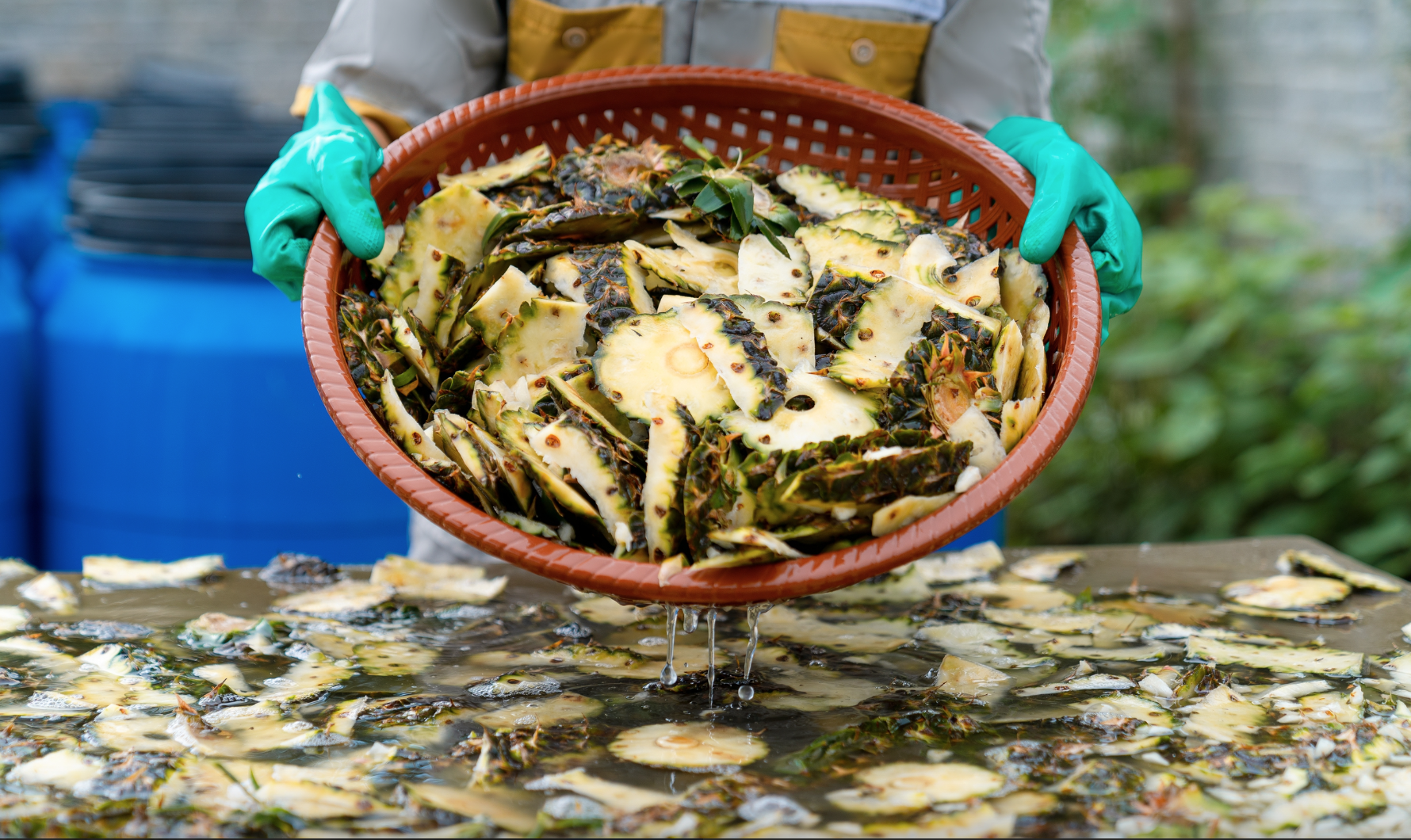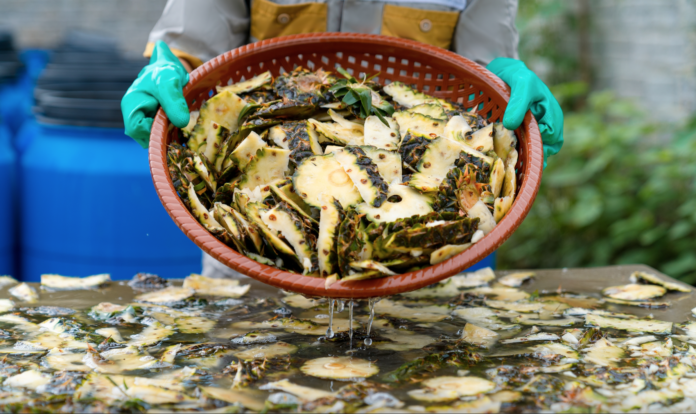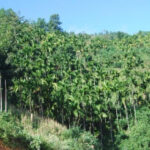Making Millions from Pineapple Skins
Instead of being discarded as waste, pineapple skins are now being utilized for various purposes, especially in the fields of manufacturing, processing, and environmental protection.
In Vietnam, FUWA Biotech Co., Ltd. has been a pioneer in transforming pineapple skins into high-value products. After years of research, the company has collected waste from pineapple fruits (skins) to ferment and create a biological dishwashing liquid. To date, the company has developed over eight product lines, including laundry detergent, floor cleaner, hand soap, toilet cleaner, gel and dishwasher salt, food rinsing water, and odor remover…
FUWA informed that the company introduces more than 40,000 products to the market each month, with revenue exceeding 2 billion VND. Their distribution system has covered the whole country with over 500 distributors and agents, along with more than 30 refill points – spreading the green consumption habit to the community.
Additionally, the company’s products have been listed on the US Amazon e-commerce platform and exported to markets such as the US, China, and Malaysia.

Pineapple skins are cleaned before processing.
The Power of Pineapple Skins
Pineapple skins, an agricultural waste product that is usually discarded, are a valuable resource for the production of eco-enzymes – an organic enzyme used as a natural cleaning agent. Fermenting pineapple skins helps reduce food waste and contributes to lowering CO2 emissions, providing significant environmental benefits.
According to a United Nations report, using food waste to produce energy and raw materials can reduce global greenhouse gas emissions by 20-30%.
What’s special is that the fermentation process of pineapple skins does not require much energy or harmful chemicals, reducing the product’s carbon footprint. A study shows that biological fermentation can reduce up to 50% of emissions during production compared to traditional methods.
Pineapple skins contain high levels of bromelain, which helps exfoliate and brighten the skin. Skin care products such as masks and creams made from pineapple skins are becoming increasingly popular. These products can help brighten and smooth the skin. Eco Enzyme made from pineapple skins provides a natural cleaning solution for households or farms and is especially beneficial for environmental protection.
The bromelain enzyme in pineapple skins has anti-inflammatory, analgesic, and digestive support properties and can be processed into nutritional supplement capsules.
Additionally, pineapple skins can be used as a natural fertilizer for crops, improving soil quality and providing additional nutrients to plants. They can also be utilized in biogas production, generating energy from organic waste. The fibers from pineapple skins can be made into bio-fabric, replacing synthetic materials that are not environmentally friendly in the textile industry.







































